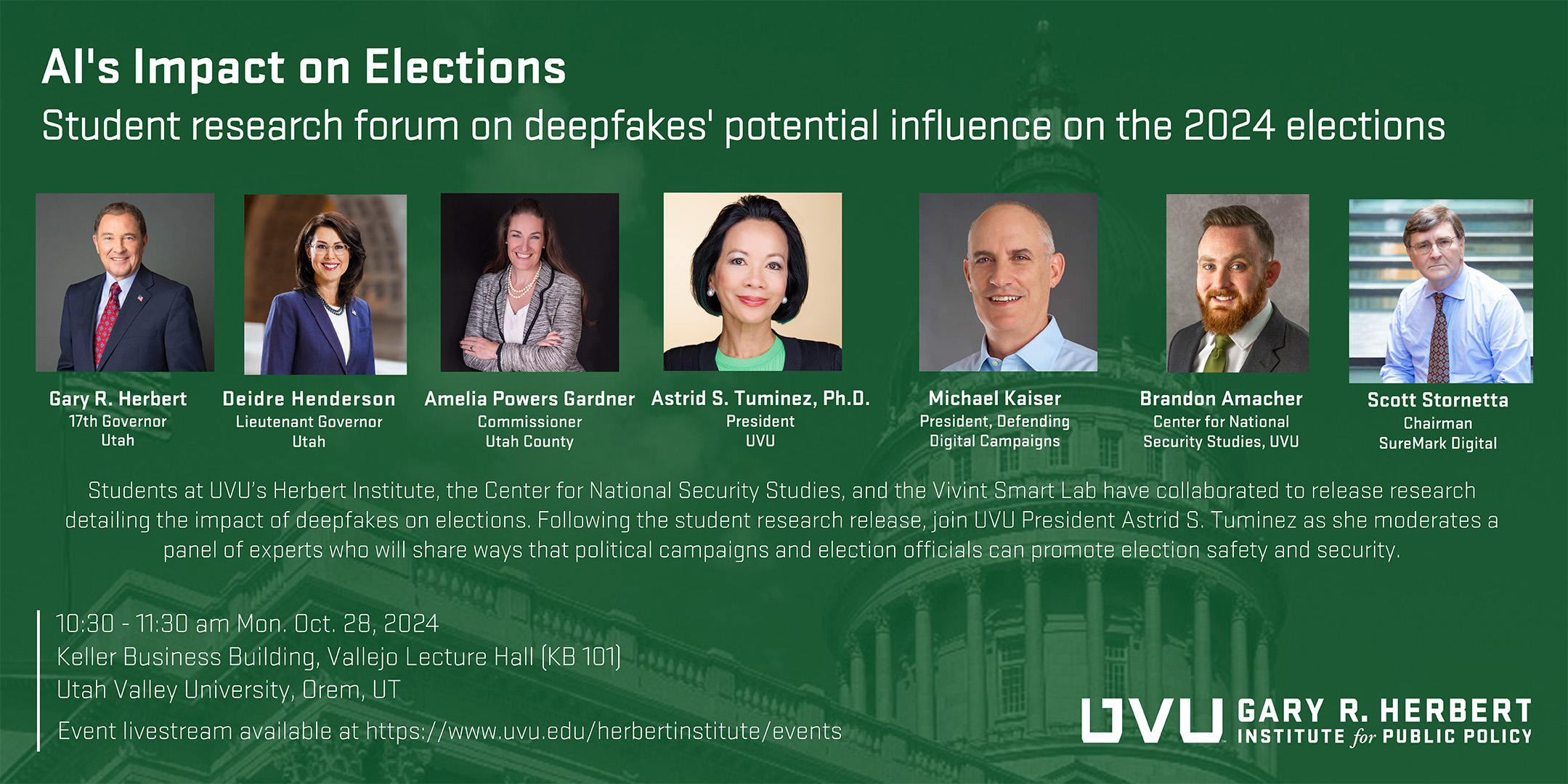Students from three Utah Valley University organizations will present collaborative research on whether people can detect deepfake content and if it can impact elections at a presentation on Oct. 28, from 10:30 to 11:30 am in the Scott C. Keller Building on UVU’s Orem Campus.

OREM, Utah — Students from three Utah Valley University organizations will present collaborative research on whether people can detect deepfake content and if it can impact elections at a presentation on Oct. 28, from 10:30 to 11:30 am in the Scott C. Keller Building on UVU’s Orem Campus.
The study tested 244 subjects across the United States with real and deepfake video and audio to determine their ability to distinguish between the two. The UVU Sales Marketing Applied Research Test Laboratory (SMARTLab) employed biometric methods, including eye tracking and facial coding, to analyze the results. Additionally, the research examines how deepfakes can influence elections and outlines necessary measures to ensure election safety and security.
“Artificial intelligence is a tremendous tool, but this research tells a cautionary tale for our democracy by illustrating how easily it can be used to push fake messages to voters,” said Brandon Amacher, director of the UVU Emerging Tech Policy Lab and instructor for the UVU Center for National Security Studies. “It is incumbent that we address this issue from a technology perspective, a public policy perspective, and a voter education perspective.”
After the student research presentation, UVU President Astrid S. Tuminez will moderate a panel of experts discussing how political campaigns and election officials can enhance election safety and security.
Panelists include Amacher; Deidre Henderson, Utah lieutenant governor; Michael Kaiser, president and CEO of Defending Digital Campaigns; Amelia Powers Gardner, Utah County commissioner; and Brad Romney, president and CEO of SureMark DigitalTM.
The research was conducted by students from UVU’s Herbert Institute for Public Policy, the Center for National Security Studies, and the SMARTLab. They collaborated with SureMark Digital™, an external firm that specializes in technology designed to help high-profile individuals safeguard their online identities.
“The tech industry has the ability to develop tools to authenticate content. This needs to be a priority to stay ahead of ill-intentioned individuals who are bent on producing and distributing fake content, whether of a political nature or otherwise,” Romney said.